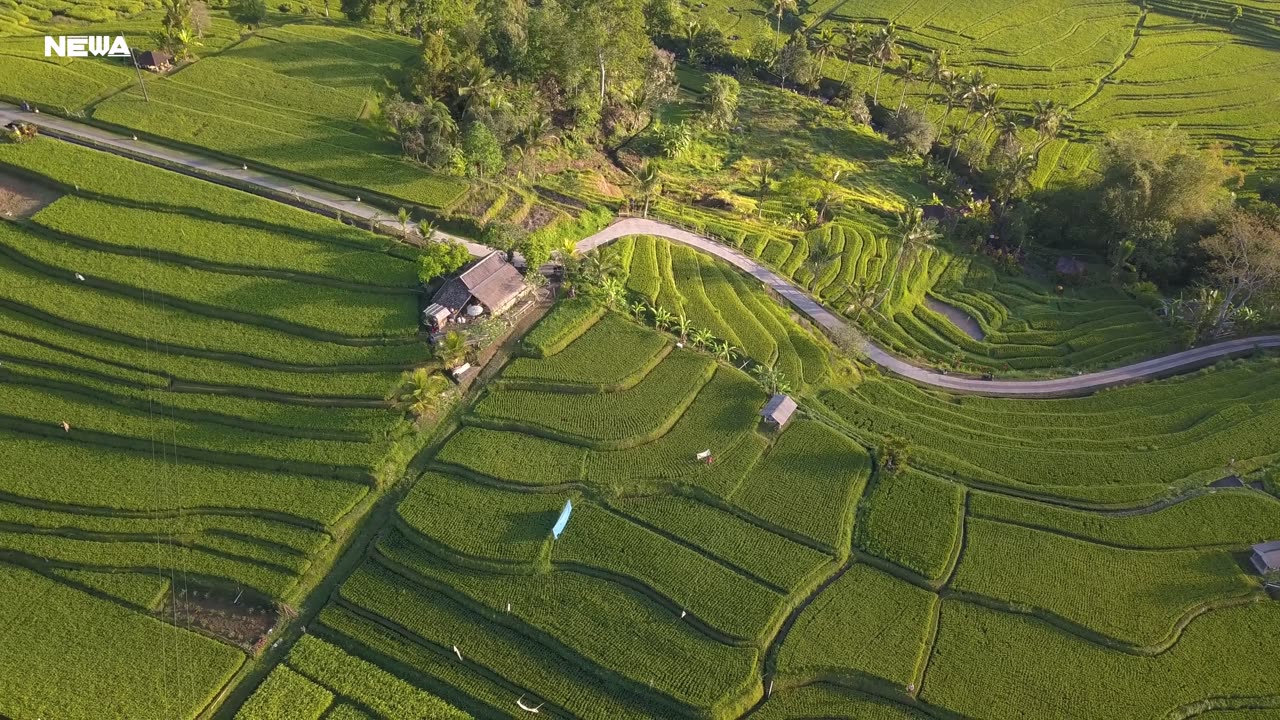Premium Only Content

China's food security: advanced rice thrives in salt deserts of Xinjiang, where most flora dies.
China is heralding increased production of salt-tolerant rice as additional evidence that its food-security push has taken root on the rim of Xinjiang's desert, where the soil is so saline that most flora refuses to grow.
Beijing expects increased yields of genetically modified crops, particularly in isolated and rural areas where arable land is scarce, to contribute to a long-term solution to feeding the country's 1.4 billion people.
According to Xinhua, following an on-site inspection on Friday, an official survey group estimated the final yield of salt-tolerant rice in Aksu, in the inland Xinjiang Uygur autonomous region, at the edge of the Taklimakan Desert in western China, to be 573.8kg (1,265 pounds) per mu, using a Chinese unit of area equal to 15 hectares, or 37 acres.
The yield per mu was about 150kg greater than the average production in salt-tolerant rice fields. It was unclear how long they had been producing rice in that area, although the assessed fields had just been recovered from fallow ground.
-
 LIVE
LIVE
TimcastIRL
1 hour agoTrump Orders Specialized National Guard Units To Combat Crime In Cities, Dems Furious | Timcast IRL
23,560 watching -
 LIVE
LIVE
SpartakusLIVE
2 hours ago#1 Rocket CHAMPION of Verdansk wields UNSTOPPABLE new META
293 watching -
 LIVE
LIVE
Barry Cunningham
2 hours agoPRESIDENT TRUMP MADE TODAY A VERY BAD DAY TO BE A DEMOCRAT!
7,084 watching -
 1:45:02
1:45:02
Glenn Greenwald
3 hours agoIsrael Slaughters More Journalists, Hiding War Crimes; Trump's Unconstitutional Flag Burning Ban; Glenn Takes Your Questions | SYSTEM UPDATE #504
68K46 -
 DVR
DVR
Stephen Gardner
45 minutes ago🔥'Burn ALL TRUMP FLAGS’ says Tim Walz + Democrat CAUGHT rigging own election!
2191 -
 10:10
10:10
robbijan
1 day agoHollywood’s Hidden Messages: Predictive Programming & What’s Next
1.13K3 -
 40:13
40:13
MattMorseTV
2 hours ago $3.62 earned🔴It's EVEN WORSE than we thought...🔴
12K37 -
 LIVE
LIVE
The Jimmy Dore Show
3 hours agoSnoop Dogg Is DONE w/ LBGTQ+ Propaganda In Kids Movies! Trump Outlaws Burning the U.S. Flag!
7,195 watching -
 LIVE
LIVE
MissesMaam
4 hours agoDying Light w/ Da Bois💚✨
128 watching -
 LIVE
LIVE
Sgt Wilky Plays
1 hour agoThe Finals with the Pack
35 watching